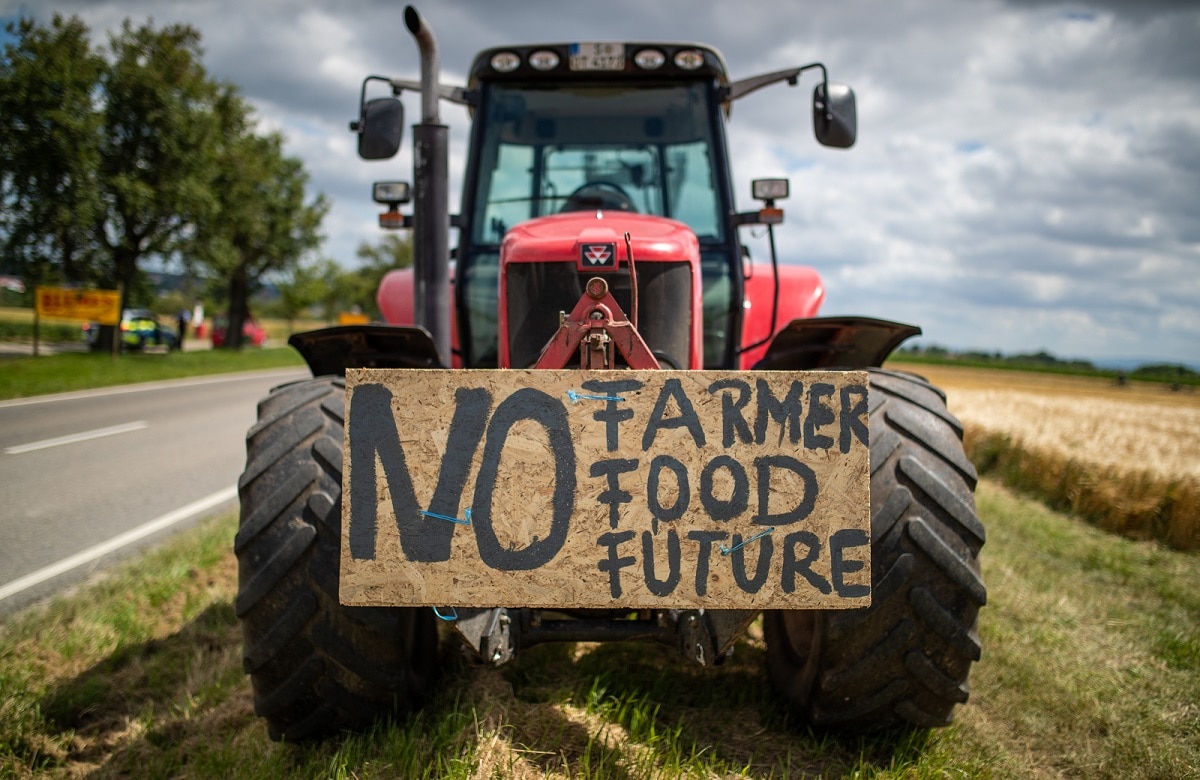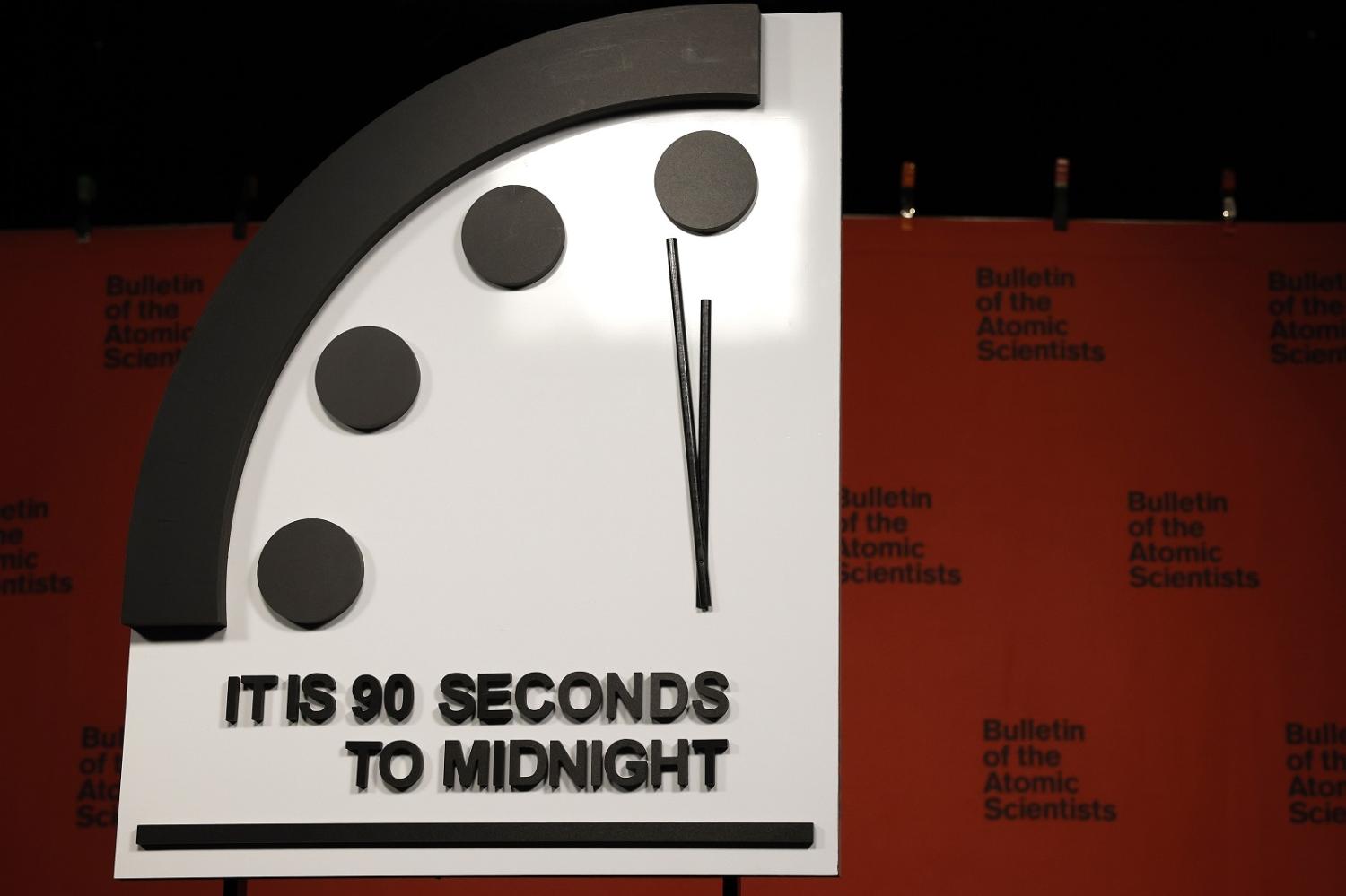Existential risks have been in the news recently. In May, a group of prominent artificial intelligence experts and industry leaders warned that “Mitigating the risk of extinction from AI should be a global priority alongside other societal-scale risks such as pandemics and nuclear war.” This followed an open letter from experts and industry leaders in March that called for a moratorium on the AI arms race so safety and governance systems can be developed to reduce the “profound risks to society and humanity”.
Nuclear risk has also come into focus following Russian President Vladimir Putin’s disastrous Ukraine invasion, with the Kremlin and its mouthpieces issuing several veiled (and not-so-veiled) nuclear threats and suspending participation in a key nuclear arms reduction treaty with the United States. Former Russian President Dmitry Medvedev said in March that Western military aid to Ukraine would “bring the nuclear apocalypse closer”. Atomic scientists believe the hands of the doomsday clock have approached 90 seconds to midnight – “the closest to global catastrophe it has ever been” – largely in response to these developments.
Climate change was also a factor in that pronouncement. New research suggests a fifth of global ecosystems could collapse before 2100, and a recent Intergovernmental Panel on Climate Change report warns of “a rapidly closing window of opportunity” for action, with the impact of decisions made this decade reverberating “for thousands of years”. While there is uncertainty over whether climate change risk is existential (as opposed to “merely” catastrophic), it’s widely accepted that its effects can be drivers for risks that are.
And Covid-19 served as a stark reminder of the chaos that can be wrought by pandemics in a globalised world. When the next one emerges (by accident or otherwise), and if its transmissibility and mortality rates are sufficiently high (a particular risk with “gain of function” and biological weapons research), it could represent an existential threat.

The above are all examples of what the late Kofi Annan famously termed “problems without passports”, insofar as their resolution is contingent upon collective action. A 2021 UN report from the Secretary-General describes the need to act on existential risk as an “ethical imperative” and states that the very future of humanity depends “on solidarity and working together”. That such a clarion call for multilateralism was required reflects the grim reality that, at a time when it has perhaps never been more needed, there is a deficit in international cooperation.
In relation to contemporary challenges, let alone potential future risks, it’s not uncommon to hear variations of what essentially amounts to fatalistic acceptance that nothing much can be done; that this is just “how it is” in an anarchic international system where the pendulum has swung away from cooperation and towards competition. But if such logic prevails as conventional wisdom over the longer term – if the can is continually kicked down the road – then the unavoidable result will be that existential risk compounds to unsustainable levels. Philosopher Toby Ord estimates the probability that humanity will become extinct, or its potential irrevocably destroyed, at one in six this century.
Fortunately, there are proactive steps that individual governments can take to lead by example and prepare the groundwork for when the climate for international cooperation is more amenable. Models that have been proposed include establishing a parliamentary commissioner supported by multidisciplinary teams (New Zealand); implementing a “Three Lines of Defence” strategy through the creation of an Office of Risk Management and National Extreme Risks Institute (United Kingdom); and setting up an interagency taskforce as “the first critical step towards a national preparedness plan” (United States). A recent report from the Australian National University recommended that Australia institutionalise a “more holistic approach” to risk by establishing a national risk assessment that brings together existing “effective but siloed risk management”. All of these emphasise the importance of a coordinated approach across agencies and departments.
A whole-of-society approach to existential risk mitigation need not be expensive or laborious. Governments can lead the way through official statements and documents that draw attention to the challenge (which has recently occurred, for example, in the United States and United Kingdom). Rather than being seen as a solution in and of itself, a whole-of-society approach should be understood more as a guiding framework. The ability of governments to exercise influence isn’t limited to departmental directives, but in a galvanizing narrative that helps bring academia, business, civil society and other sub-national stakeholders on board, establishing a common baseline for action. A unified front at the national level in turn gives coherence to international efforts.
Small outlays on research could likewise have outsized effects in a field that is profoundly underfunded. The Biological Weapons Convention, for example, “has just four employees, and a smaller budget than an average McDonald’s [US$1.4m]”. Supporting organisations and institutions that work on existential risk is positive sum, with efforts that reduce risk in one area also contributing to a more sustainable risk profile overall.
These might seem small-fry steps when considering the potential stakes, but a coordinated, incremental approach to existential risk is better than a scattergun approach (or none at all). The scale and intergenerational nature of the challenge mean that’s probably the only realistic way forward. It can seem overwhelming – even an indulgence – to look more than a few decades ahead given the challenges we face in the present. But the sooner that work to address existential risk begins, however modest, the less likely the potential outcomes are to materialise.

